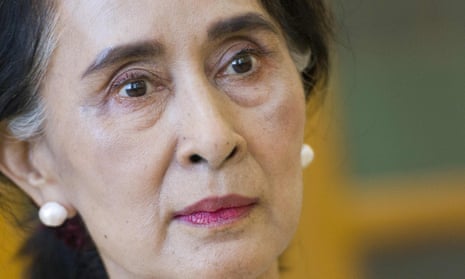A Myanmar court has deferred the first verdicts in the trial of ousted leader Aung San Suu Kyi to 6 December, a source familiar with the proceedings said.
The Nobel Peace laureate, who led an elected civilian government that was ousted in a military coup on 1 February, has been held incommunicado and been on trial since June, with court hearings behind closed doors.
On Tuesday, the court had been due to rule on charges of incitement and violations of Covid-19 protocols under a natural disasters law, among nearly a dozen cases against Aung San Suu Kyi, 76, that could see her jailed for decades. She has rejected all charges.
The source, who spoke on condition of anonymity, did not give a reason for the deferral.
The court in the military-built capital, Naypyitaw, could not immediately be reached and a spokesperson for the ruling military council did not answer telephone calls early on Tuesday.
More than 1,200 people have been killed and over 10,000 arrested in a crackdown on dissent following the coup, according to a local monitoring group.
Aung San Suu Kyi faces three years in prison if found guilty of incitement against the military.
Journalists have been barred from proceedings in the court, and Aung San Suu Kyi’s lawyers were recently banned from speaking to the media.
Days after the coup, Aung San Suu Kyi was hit with obscure charges for possessing unlicensed walkie-talkies and for violating coronavirus restrictions during elections her National League for Democracy (NLD) won in 2020.
The junta has since added a slew of other indictments, including violating the official secrets act, corruption and electoral fraud.
Aung San Suu Kyi now appears most weekdays at the junta courtroom, with her legal team saying last month the hectic schedule was taking a toll on the 76-year-old’s health.
Aung San Suu Kyi’s long spells of house arrest under a previous junta were spent at her family’s colonial-era mansion in Yangon, where she would appear before thousands gathered on the other side of her garden fence.
Min Aung Hlaing’s regime has confined her to an undisclosed location in the capital, with her link to the outside world limited to brief pre-trial meetings with her lawyers.
At her first court appearance, she used them to send a message of defiance, vowing the NLD would endure and asking the party faithful to remain united.
But in October her team was hit with a gag order after it relayed vivid testimony from deposed president Win Myint describing how he rejected a military offer to resign to save himself during the coup.
In recent weeks the trials of other ranking members of Aung San Suu Kyi’s NLD have wrapped up, with the junta doling out harsh sentences.
A former chief minister was sentenced this month to 75 years in jail, while a close Aung San Suu Kyi aide was jailed for 20.
